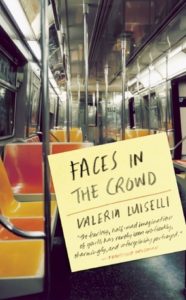 Title: The True Deceiver (Goodreads)
Title: The True Deceiver (Goodreads)
Author: Tove Jansson
Translator: Thomas Teal
Published: Sort Of Books, 1982
Pages: 201
Genres: Literary Fiction
My Copy: Paperback
Buy: Amazon, Book Depository, Kindle, Wordery (or visit your local Indie bookstore)
My first experience with Tove Jansson was reading Fair Play last year, but for some reason I never wrote a review. I enjoyed the book thoroughly, particularly the relationship between Mari and Jonna. I believe that the novel was autobiographical as it share similarities with the life she shared with Tuulikki Pietilä. I mention Fair Play because The True Deceiver shares similarities but portrays a vastly different relationship between the two women. In the deep winter snow, a young woman fakes a break-in of an elderly artist in order to persuade her that she needs companionship. A novel of both deception and friendship, The True Deceiver is a chilling tale of an unorthodox friendship.
This is a quiet little novel of two social outcasts who develop a relationship in the most unconventional way. The book explores the idea of finding truth behind deception. Katri convinces the rich illustrator Anna to take her and her brother in so they could care for the house. While the plot is not that interesting in the grand scheme of things, it is the character development that makes this a brilliant book. There are similarities between Katri and Anna, both social outcasts, both lonelier than they would want people to believe and it is their relationship that drives this novel.
I admit that Katri’s deception made me dislike her, but it was hard to keep that attitude towards her. Katri was witty and sharp tongued, and I quickly fell in love with her for those qualities. I admit I love characters that rail against social norms and once I got past her deception to Anna, I appreciated her brutal honest attitude. Then there is Anna, who I identified with as an eccentric recluse. The chilliness of the weather and the coldness of the deception combined with the relationship between Katri and Anna brought everything together wonderfully.
It is often hard to review a novel like The True Deceiver or even Fair Play. I feel like these types of novels need to be experienced firsthand. It is a character driven novel that will stay with you for a long time. As much as I enjoyed Fair Play, I do think The True Deceiver is a stronger book, and I would recommend starting with it, if you have never tried Tove Jansson’s adult novels. The next Jansson pick would have to be The Summer Book, it seems to be the one everyone talks about.

 Title: Lullaby (
Title: Lullaby ( Title: Soviet Milk (
Title: Soviet Milk ( Title: La Bastarda (
Title: La Bastarda ( Title: The 7th Function of Language (
Title: The 7th Function of Language ( Title: The Neighborhood (
Title: The Neighborhood ( Title: The Sound of Things Falling (
Title: The Sound of Things Falling ( Title: Faces in the Crowd (
Title: Faces in the Crowd ( Title: August (
Title: August ( Title: The Seven Madmen (
Title: The Seven Madmen (